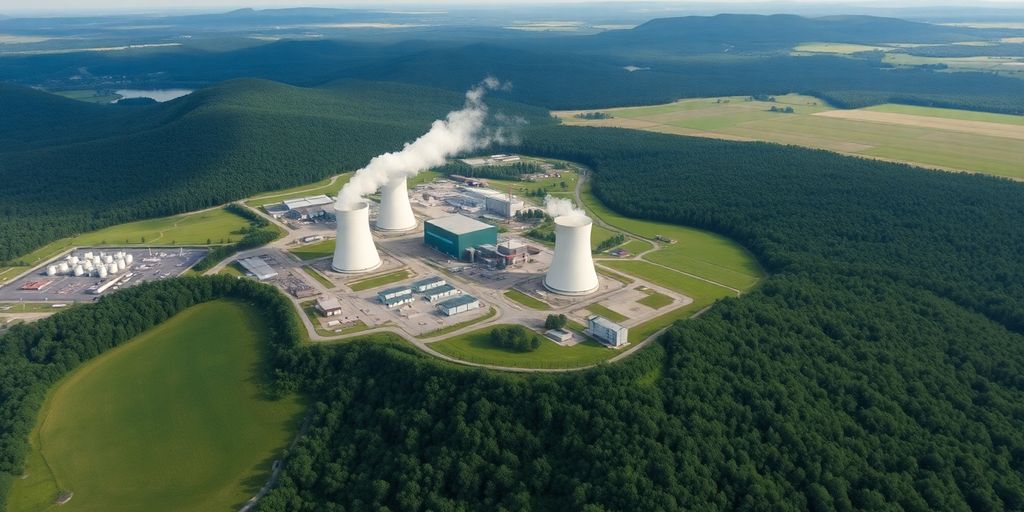Slovenia’s parliament has officially canceled a nationwide referendum that was scheduled for November 24, 2024, regarding the proposed construction of a new nuclear power plant, known as the JEK2 project. This decision comes after significant public criticism and legal challenges concerning the referendum’s wording and its overall legitimacy.
Key Takeaways
- The referendum on the JEK2 nuclear project was set for November 24 but has been canceled.
- Lawmakers cited concerns over the ability of voters to make an informed decision.
- The JEK2 project aims to build a new nuclear facility next to the existing Krško plant.
- The government plans to prepare a special law for the JEK2 project, with a potential future referendum in 2028.
Background of the JEK2 Project
The JEK2 project proposes the construction of one or two new nuclear power units with a combined capacity of up to 2400 MW, adjacent to Slovenia’s existing Krško nuclear power plant. The Krško plant, which is co-owned by Slovenia and Croatia, currently provides about one-third of Slovenia’s electricity and meets a significant portion of Croatia’s energy needs as well.
Reasons for Cancellation
The cancellation of the referendum was prompted by:
- Legal Challenges: Environmental groups and experts raised concerns about the legality of the referendum, leading to complaints filed with the constitutional court.
- Public Criticism: There were widespread criticisms regarding the referendum’s question, which asked voters if they supported the JEK2 project as a means to ensure a stable electricity supply alongside other low-carbon sources.
- Lack of Information: Lawmakers expressed doubts about whether voters could make an informed decision on such a critical issue, emphasizing the need for more comprehensive information.
Political Reactions
The decision to cancel the referendum has drawn mixed reactions:
- Support from Government Officials: Slovenia’s President Natasa Pirc Musar expressed satisfaction with the cancellation, stating that more information is necessary for voters to make an informed choice.
- Opposition Concerns: The opposition Slovenian Democratic Party (SDS), which initially supported the referendum, has now criticized the government’s handling of the situation. They accused Energy Minister Bojan Kumer of withholding an analysis regarding the costs of alternative energy sources, which they believe should have been made public.
Future of the JEK2 Project
Despite the cancellation of the referendum, the government has assured that the JEK2 project is not dead. Plans include:
- Special Legislation: The government intends to draft a special law to facilitate the project’s implementation, which will include provisions for public participation and oversight.
- Future Referendum: A new referendum on the JEK2 project is anticipated to take place by 2028, once all necessary studies and details are finalized.
Economic Implications
The estimated cost of the JEK2 project ranges from EUR 9.5 billion to EUR 15.4 billion (approximately USD 10.3 billion to USD 16.7 billion). This significant investment is seen as crucial for Slovenia’s energy future, especially as the country seeks to balance its energy needs with environmental considerations.
In conclusion, while the cancellation of the referendum has raised questions about the future of nuclear energy in Slovenia, it also opens the door for more informed discussions and planning regarding the JEK2 project. The government’s commitment to transparency and public involvement will be key as they move forward with this ambitious energy initiative.
Sources
- Slovenia’s referendum on new nuclear cancelled, World Nuclear News.
- Slovenia cancels referendum on new nuclear plant, Reuters.






